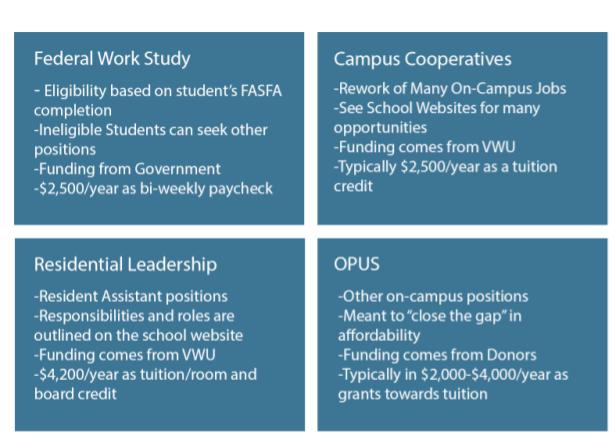Junior Annie O’Shea stands center stage during a dress rehearsal of “Anastasia,” in which she plays the female lead Anya.
Laila Jones|Marlin Chronicle
The VWU theater put on a production of “Anastasia,” a 2017 musical based on both a film and an animated movie, both by the same name, from April 4 to April 7.
“Anastasia,” a 2017 musical set just after the Russian Revolution, was performed at Virginia Wesleyan in the Susan S. Goode Fine and Performing Arts Center from Thursday, April 4 through Sunday, April 7. The musical centers around lost memories, especially those of Anya, a female lead.
Dr. Travis Malone, professor of Theatre and Anne B. Shumadine Dean of the Batten Honors College, said that the musical was selected to “push” performers. He picked a musical that would showcase and hone their talents, as well as because of the current political climate.
Malone also emphasized the themes of memory. “There’s this constant sense of nostalgia,” Malone said.
Songs such as “A Rumor in St. Petersburg” and “Land of Yesterday” get across this longing for an idealized Russia, that might not have ever existed and is regardless in the past. Malone said the musical asks us to confront the power of our own memory.
The musical centers around Anya, an amnesiac who, in her desire to escape a newly-communist Russia, falls into a scheme with Dmitry and Vlad Popov.
These men are con artists who convince Anya to pretend to be Princess Anastasia, the presumed dead daughter of the late Tsar Nicholas II. Rumors surround Anastasia’s survival and put the leads on the run from the communists who overthrew the Romanov government.
Through the course of the musical, Anya is shown to be Anastasia herself, but in the end rejects the title of princess to run away with Dmitry.
Anya is played by Annie O’Shea, a junior majoring in Music Education. “Anya was one of those roles I dreamed of performing,” O’Shea said.

Cast members of “Anastasia” perform “We’ll Go from There.”
Laila Jones|Marlin Chronicle
She described watching the movie, and then, once the musical came out, daydreamed about performing her. She said she didn’t ever think she would play the role.
O’Shea said she “really resonates with the character” of Anya and that she felt she had to prove herself worthy of the role.
One of the most prevalent themes is memory, with Anya grappling with her amnesia and flashes of Anastasia’s family coming to her in her dreams. Other characters also struggle with memory and the past of imperial Russia. Malone mentioned a favorite quote: “I’m an old woman who remembers everything the way it should have been and nothing the way it was,” said by Countess Lily, played by junior Erin Andrews.
Another big element of “Anastasia” is change. All six major leads, with the exception of Countess Lily, change in some major way from their introduction to their end. Anya changes in her memory of herself and her trust of other people, according to O’Shea.
“I purposefully started her off as shy and closed off,” O’Shea said, noting that since Anya didn’t remember her past, she didn’t know who she was.
Dmitry, a young “Russian rat” who has never left St. Petersburg, went through a period of change and letting people in. His character was played by senior Elias Kenworthy.
“I’m playing him as a one-dimensional super-straight,” Kenworthy said of his performance at the beginning of the musical.
Super-straight is a term generally used to refer to misogynistic and otherwise exclusionary straight people. Kenworthy described Dmitry in Act One as a playboy. He described Anya as taking a “pickaxe to his walls,” and Dmitry lets go of the persona he had at the beginning, which Kenworthy said Dmitry needed to adopt to survive.
Junior John Post played Gleb, a conflicted Bolshevik and the antagonist of the musical. Post said that Gleb is a man who “wants to protect the people that he loves.”
Gleb’s inner turmoil is between his country and his love, with Post saying that Gleb is in love with Anya but is asked to kill her. Post described the role of Gleb as “completely different from anything I’ve played,” and described him as a person who has power, rather than wants it.
According to Malone, “Anastasia” is larger than any other theater production he has been present for in his 19 years at VWU. Malone said there were 27 cast members.
“If you have a big cast, it’s always a lot of fun,” Post said. They praised Malone and said that “he gave everyone a moment.” Post said Malone’s ability to give everyone time was “the most important part of doing a big-cast show.”
Kenworthy viewed the full cast as an asset and important aspect of the show. “You can have leads who are phenomenal, and it’s not really going to matter if the whole thing doesn’t sound good,” he said.
Malone sees “Anastasia” as having political relevance today through an immigration lens.
“So many people from different countries end up moving,” Malone said. In addition, he thought the memory aspect would appeal to people trying to “come to terms with their past.”
Cast members spoken to were generally excited to be in “Anastasia.” O’Shea said that as a kid, she saw the movie and wanted to be the princess. For her, it was a “dream role.” Kenworthy said that the movie was really good and expressed disbelief that some members of the cast had not seen the animated movie.
Post, who said they had never seen the animated movie, said they had looked forward to it since they heard the music was made by Ahrens and Flaherty. They said that they would “absolutely” audition if one of the local theaters produced it.
The musical differed from the animated movie in several ways, the most complained about being the removal of Rasputin, the villain of the musical, and his audience-beloved pet bat.
“[You] might mourn the lack of a bat, fun music and Rasputin, but it gains this great emotional arc,” Malone said. O’Shea mentioned that the bat in the original was “very cute.” Kenworthy, though, went a little bit further.
“No offense to the stage performance, but the movie is just better,” Kenworthy said. “Where is the little bat?”
Auditions were open to the community, as most main stage Virginia Wesleyan theater productions are. Several characters, including Dowager Empress Maria and Tsar Nicholas II, were played by older adults who do not attend Virginia Wesleyan, and some, like some of the ensemble, are played by high school students.
Malone described having “generations of performers,” and said some members of the cast were accomplished actors who brought abilities to the cast and were beneficial for the college students performing alongside them.
“I love rehearsals—I love seeing their growth,” Malone said. That is the part that audiences don’t get to experience, Malone said.
“Anastasia” offered a bittersweet reflection on the impact of change and the power of memory.
By Victoria Haneline


